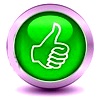A wiki is a web platform that enables multiple users to collaboratively create, edit, and arrange content through a browser.
Wikis prioritize ease of use and openness: pages can be added or changed without technical expertise, and most track every edit so changes can be reviewed or undone.
Main features
- **Collaborative editing:** Numerous contributors can work on pages, sometimes simultaneously.
- **Edit history:** All edits are stored with timestamps and the author’s name or IP.
- **Interlinking:** Links between pages are simple to create, helping build connected content.
- **Lightweight markup:** Simple markup languages (such as WikiText or Markdown) are used to format pages.
- **Permission settings:** Wikis may allow public editing or restrict changes to registered or authorized users.
- **Discussion pages:** Talk or discussion pages let contributors debate edits and organization.
Common uses
- Crowd-sourced knowledge resources (e.g., Wikipedia)
- Project docs and corporate knowledge repositories
- Collaborative writing and shared note-taking
- Educational and classroom projects
Advantages
- **Fast collaboration:** Contributors can rapidly create and improve content.
- **Openness:** Transparency through revision histories and discussions.
- **Expandable:** They scale organically as users add more pages and topics.
Drawbacks
- **Vandalism and false information:** Open contribution can result in deliberate or accidental misinformation.
- **Inconsistent quality:** Articles can differ greatly in depth, tone, and reliability.
- **Organizational issues:** Lack of structure or rules can lead to disorganization and conflicts.
Example
- **Wikipedia** — the best-known wiki, run by the Wikimedia Foundation and built by volunteer contributors worldwide.






















